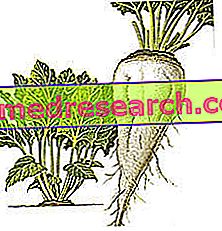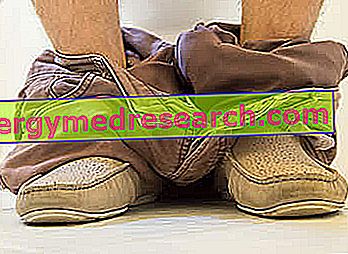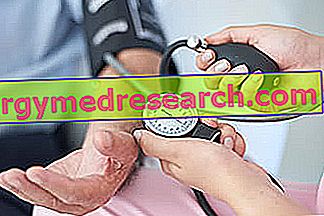Generality
Betaine is a natural substance extracted from sugar beet ( Beta vulgaris ), to which it owes its name.

Due to this activity, Betaine has been successfully used in the treatment of homocystinuria and hyperhomocysteinemia, conditions associated with an increased cardiovascular risk.
Betaine is available on the market both as a drug (eg Cystadane ®) and as a food supplement.
Indications
Why is Betaine used? What is it for?
The health interest in Betaine derives from its ability to yield methyl groups to homocysteine, transforming it into methionine (the essential amino acid from which it derives).
This is a rather positive effect, as at high concentrations the plasma homocysteine has been shown to significantly increase cardiovascular risk.
deepening
Betaine shares the action of the methionine synthase enzyme, which operates the homogenesis of methionine remethylation thanks to the presence of vitamin B12, as coenzyme, and folic acid (the enzyme reduces 5-methyl-tetrahydrofolate (MTHF) to methyltetrahydrofolate), which, in turn, provides the methyl group necessary for the transformation of homocysteine into methionine).

The contribution of betaine to homocysteine remethylation is however secondary compared to the mechanism described above.
Currently, therefore, to lower the levels of homocysteine in the blood, action is taken on several fronts, associating:
- folic acid, possibly in the form 5-methyltetrahydrofolate,
- vitamin B12,
- Betaine
- vitamin B6 (pyridoxalphosphate acts as a coenzyme in the homocysteine transulfation, operated by the enzyme cystathionine-asi-synthase, which catalyzes the condensation reaction of homocysteine with serine, forming cystationine, then degraded to cysteine, see image).
In light of the valuable biochemical role, Betaine is mainly used as a useful remedy against hyperhomocysteinemia and homocysteuria.
Property and Effectiveness
What benefits has Betaine shown during the studies?
In addition to the detoxifying activity with respect to homocysteine, widely described in the previous paragraph, Betaine has shown during the studies, especially experimental ones, other interesting activities.
More precisely, Betaine would seem:
- Exercise hepatoprotective action against environmental intoxicants;
- Exercise a lipotropic action (useful activity in preventing and accelerating the removal of deposited fat) against the fatty liver (steatosic);
- Exercise a mild antidepressant action, as as shown in the figure can be converted to S-adenosylmethionine, a substance with non-specific antidepressant effects;
- Exercise a neuroprotective action against alcohol-induced damage;
- Exercise a potential slimming activity.
However, these activities, mostly obtained from experimental models, would require further investigations of a clinical nature.
Doses and method of use
How to use Betaine
Betaine is generally present in the form of supplements.
The most used dosage in the treatment, as an adjuvant, of hyperhomocysteinemia and hyperhomocysteine in the adult is generally 6g a day, divided into two equal doses.
Betaine is classically used in association with B vitamins such as vitamin B6, Vitamin B9 and vitamin B12, all of which are useful in controlling homocysteine levels.
Side effects
Only occasionally the use of Betaine has been associated with nausea, vomiting and diarrhea.
Contraindications
When should Betaine not be used?
The use of Betaine is contraindicated in case of hypersensitivity to the active ingredient or to structurally related molecules.
Pharmacological Interactions
Which drugs or foods can modify the effect of Betaine?
At the moment, there are no known pharmacological interactions worthy of note between Betaine and other active ingredients.
However, the simultaneous use of Betaine and Folic Acid could increase Betaine's ability to reduce homocysteine plasma concentrations.
Precautions for use
What do you need to know before taking Betaine?
The use of Betaine should be avoided, or if strictly necessary, supervised by a doctor, during pregnancy and in the subsequent period of breastfeeding.
The same precautions should be used during gastritis, gastro-oesophageal reflux disease and peptic ulcer disease.



